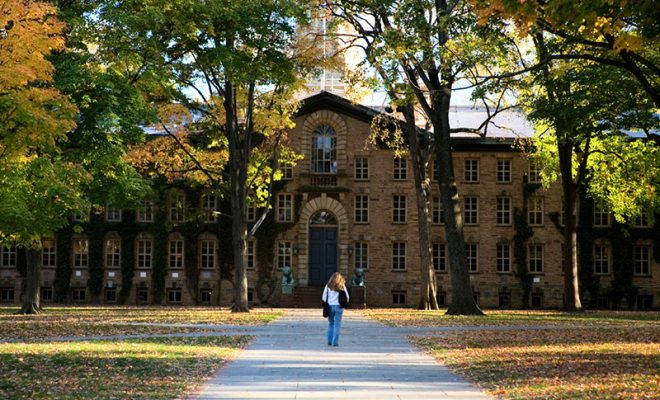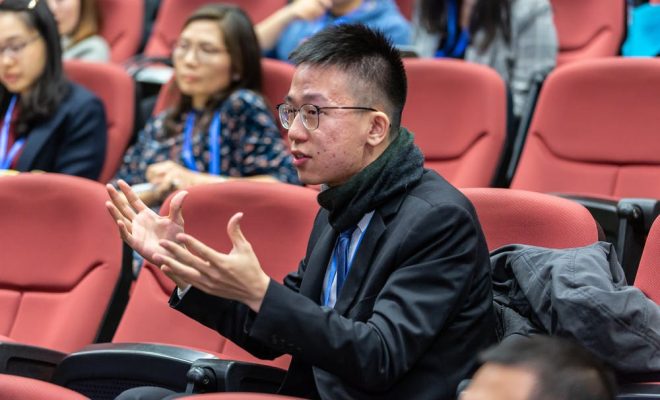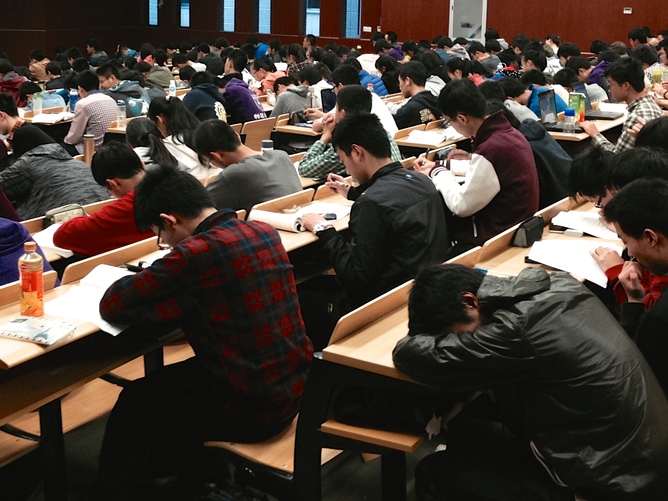2023 Best Bachelor’s Degree Programs in Chemical Engineering

Click here to find out more about the ranking methodology that we used to compile this list.
Congratulations! If you represent a college or university that is included in this list, please collect your seal below.
Deciding which college to attend can be a daunting task. For many, it will be the most important decision that they make in their lives. To make an informed decision, you have to consider a lot of variables, such as cost of attendance, financial aid, student-teacher ratio, academics, student life, and more. These factors will either positively or negatively impact the quality of education that you receive.
Do you want to acquire a bachelor’s degree in chemical engineering but don’t know what institution you should attend? Well, if you are as ambitious as I was in my late teens, then you want to attend a top school, instead of an average or mediocre one. Fortunately, we have already done the legwork for you. To help you find the right school for your interests and goals, we’ve compiled a list of 2022’s best bachelor’s in chemical engineering programs.
What institution did we omit from this list? Leave your suggestions in the comment section below.
- Stanford University, Stanford, CA
Stanford University is one of the most reputable private research institutions in the world. The chemical engineering curriculum is based on the three pillars of science: chemistry, physics, and biology. The degree program has six distinct 4-year course plans for their incoming learners. The coterminal degree enables rigorous learners to work toward an MA or MS while they are completing their undergraduate work.
- MIT, Cambridge, MA
The chemical engineering degree at MIT offers three degree program options: bachelor of science (BS) in chemical engineering, bachelor of science (BS) in chemical-biological engineering, and bachelor of science (BS) with concentration. These options allow learners to select a path that fits their particular interests and career goals.
The classes offered in the chemical engineering degree programs reflect that flexibility. Beyond the core requirements in chemistry, biology, physics, and mathematics, learners have access to classes in quantum mechanics and a wide range of other electives. These programs are led by 35 professors who are at the forefront of cutting-edge research.
- Princeton University, Princeton, NJ
Princeton University is a highly recognized private Ivy League research institution, which boasts numerous accomplished alumni who include Nobel laureates, Rhodes Scholars, and multiple National Medal of Science winners. Princeton’s rigorous chemical engineering degree program requires learners to finish 36 classes that range from core mathematics and physics to thermodynamics. Learners may concentrate in one of six areas. During their final year, learners finish a senior thesis, which is a full-year research project connected to their area of concentration.
Princeton also offers certificate programs in which the course requirements supplement chemical engineering with another field. Learners may select from applications of computing, architecture and engineering, geological engineering, robotics and intelligent systems, and others.
- California Institute of Technology, Pasadena, CA
As one of 18 most respected Institutes of Technology across the country, CalTech is a private institution dedicated to enrolling aspiring science and technology professionals. Learners enrolled in the bachelor’s program in chemical engineering at CalTech not only get the chance to study beneath some of the top researchers in the country, but they also get solid experience in chemical process simulation tools and laboratories. After completing core classes during their first two years, learners specialize in one of four tracks: biomolecular, environmental, process systems, or materials. In total, learners will finish 72 units of classes.
- University of California-Berkeley, Berkeley, CA
Chemical engineering majors are granted extensive research experience, and many learners pursue projects either independently or under the guidance of UC Berkeley’s faculty. Undergraduate learners are currently conducting research in fields such as synthetic biology, energy storage, multiscale modeling, polymer physics, and more. Often, this research leads to further study at the doctoral and professional levels.
- University of Pennsylvania, Philadelphia, PA
The chemical engineering degree program at the University of Pennsylvania emphasizes its small class sizes and its group of invested faculty. Among the possible concentrations that learners may select from are polymer science and engineering, electronic materials processing, pharmaceutics and biotechnology, and environmental engineering. To specialize, learners must take at least five classes in the concentration; these four specialty tracks allow learners to home in on specific research projects and internships, which they finish with faculty guidance.
The degree program also has a unique product/process design class, which is completed over a two-course sequence. In the fall, students learn the basics of the product and design process, and in the spring, they finish simulated design problems in groups.
- Rice University, Houston, TX
Rice University is a private research institution that receives high marks for both its beautiful campus and its academic rigor. Graduates of the BS in chemical engineering program must finish 132 credit hours, with at least 96 credits completed in the department.
This degree program offers comparable concentrations as others on our list, but Rice University also has computational engineering as a specialty path. This is for learners who are particularly interested in mathematical analysis and simulation of chemical engineering products.
- Vanderbilt University, Nashville, TN
Vanderbilt University is a private research institution offering a bachelor of engineering in chemical engineering. This degree requires 126 credit hours to finish. Within the curriculum, learners take core classes—basic science, engineering fundamentals, and liberal arts core—as well as specialized engineering classes.
In this degree program, learners may choose to specialize in nanotechnology in addition to other concentration options. During their junior year, learners may petition the faculty to join the honors degree program, which requires learners to take at least 9 hours of upper-level electives in addition to chemical engineering classes specific to the honor degree program. Honors learners finish a capstone research project and thesis, which they design one-on-one with a faculty member.
- John Hopkins University, Baltimore, MD
The bachelor of science in chemical engineering degree at Johns Hopkins has two tracks of concentration: interfaces/nanotechnology and molecular/cellular bioengineering, which learners normally finish in four years. Regardless of their concentration, learners at Johns Hopkins enjoy access to an impressive network of research programs.
Johns Hopkins also offers a unique concurrent BS/MSE degree program in chemical and biomolecular engineering, which enables junior or senior undergraduate learners to finish both their bachelor’s and master’s degrees in succession. The institution even has a 50 percent tuition waiver for learners in this degree program, which propels learners into top leadership and research positions upon graduation.
- Northwestern University, Evanston, IL
Northwestern University is a private research institution that has 124 bachelor’s degrees. To finish the BS in chemical engineering, learners must finish 48 units—32 units of core classes, 16 units of chemical engineering classes—and five technical electives. In addition, learners can choose from six areas of concentration.
Research opportunities at Northwestern are unrivaled, and undergraduate learners may apply for quarterly grants. Northwestern has a coupled BS/MS degree, which enables the top learners to finish their bachelor’s degree in less than four years. Some even finish both their bachelor’s and master’s degrees within four years; this coupled degree launches graduates directly into top-paying professional roles.
- University of Notre Dame, Notre Dame, IN
In addition to the core classes, learners at Notre Dame specialize in one of three concentrations—biomolecular engineering, materials, or energy—by taking four upper-level classes in one of the areas. In their senior year, learners have three opportunities for undergraduate research, each of which builds upon the next.
Unique to Notre Dame, this BS in Chemical Engineering gives learners opportunities to travel abroad to England, Ireland, Australia, Spain, and Italy. Back in South Bend, learners are ensured a solid education by a team of prestigious faculty. The National Research Council recently rated Notre Dame among the top 25 universities in the United States for the quality of faculty.
- Georgia Institute of Technology, Atlanta, GA
The chemical engineering degree program at Georgia Tech has three degree options. In addition to solid coursework and research opportunities, many learners stay connected with others in the field by participating in numerous chemical engineering learner organizations.
- University of Michigan-Ann Arbor, Ann Arbor, MI
Learners aiming to finish the bachelor’s (BS) in chemical engineering must pass 50 credits at U-M, including 30 technical credits of upper-level engineering classes. Within the department, many learners customize their degree.
The University of Michigan makes it easy for motivated learners to enter its bachelor’s degree program regardless of financial capabilities. The department has over 15 distinct scholarships to give undergraduates the chance to reach their professional potential. Learners also are given a chance to work within the department for credit or pay through research, internship, and TA positions.
- University of Virginia, Charlottesville, VA
The bachelor’s (BS) in chemical engineering emphasizes professional opportunities awaiting its graduates by offering three separate curricula: the broad curriculum, the biotechnology and biochemical engineering curriculum for learners wanting to specialize, and the pre-med curriculum for learners aiming for medical school. Learners may choose to work with specific professors on extensive research projects across their four-year stay at UVA.
- University of Southern California, Los Angeles, CA
The number of academic units required for the basic bachelor’s (BS) in chemical engineering is 129. But learners who specialize in a concentration take 133 units. The department gives undergraduates the choice of adding on a minor in petroleum engineering.







